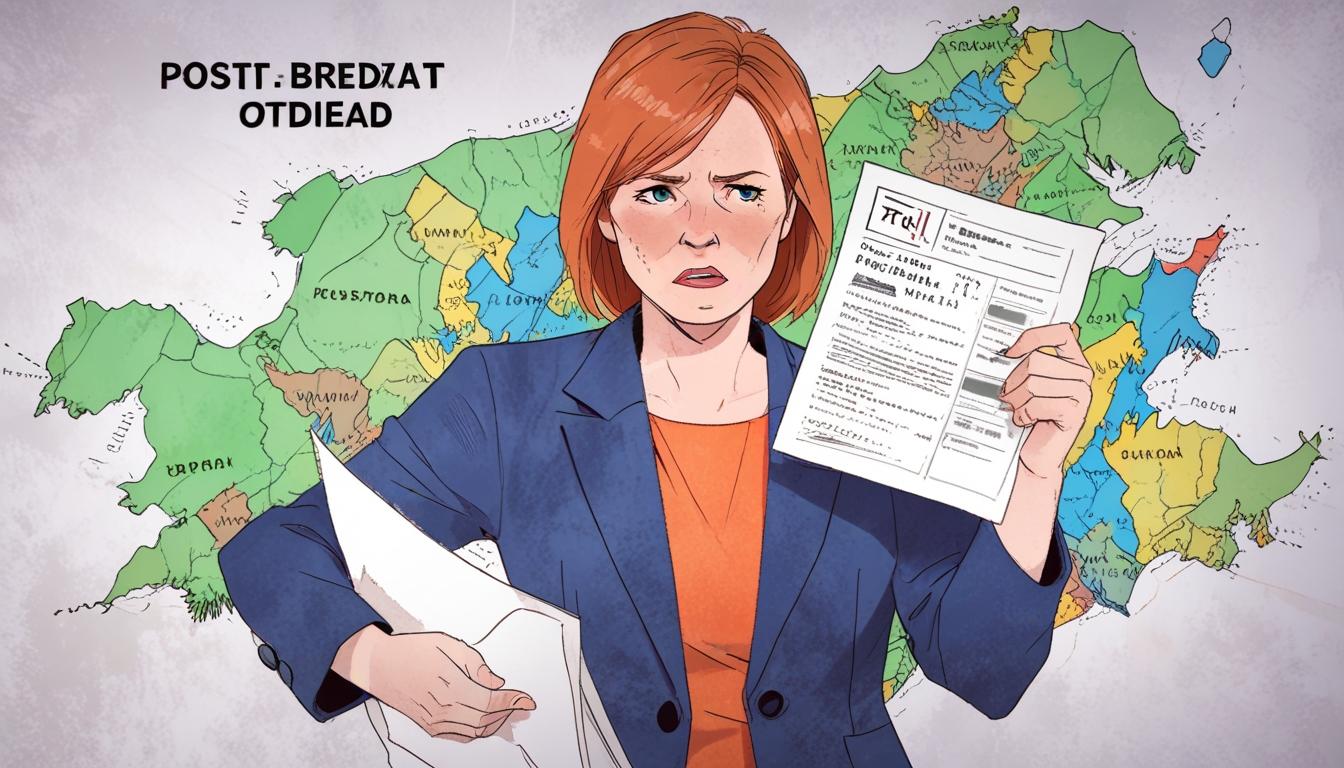Emma Little Pengelly, the deputy first minister and member of the Democratic Unionist Party (DUP), has faced significant embarrassment following a debacle concerning the recruitment of a Stormont official to manage post-Brexit trade arrangements. This situation escalated with the release of a WhatsApp conversation with Jayne Brady, head of the Northern Ireland civil service, brought to light via a Freedom of Information request.
The ill-timed recruitment of a 'head of regulatory divergence' began while the DUP had recently resumed participation in the Assembly, under the naive assumption that a deal with Prime Minister Rishi Sunak had successfully nullified the divisive Irish Sea border. Ms Little Pengelly’s cautionary messages to Ms Brady illustrate their realization that the political landscape is far from stable.
Mr. Gavin Robinson, the current DUP leader, has since conceded that earlier claims made by his predecessor regarding the ‘Safeguarding the Union’ agreement were perhaps overly optimistic. Instead of fortifying unionist interests, the deal has done little to prevent further regulatory divergence, only exacerbating the challenges faced by unionists in Northern Ireland.
In her correspondence, Ms Little Pengelly questioned the judgement behind this recruitment, asking, “Who on earth named this and how did they think this wasn’t going to attract attention and concern?” Her dissatisfaction is not misplaced; given that UK government policy currently opposes divergence pending negotiations with the EU, it underscores a lack of foresight from leadership.
As Ms Little Pengelly warned about the potential media fallout, she shared a tweet from unionist activist Jamie Bryson, which criticized the hiring of a ‘Divergence Coordinator’ as a betrayal of trust among unionists. Highlighting the need for transparency, she insisted that this decision was not ministerial and should have been transparently communicated.
In the face of criticism, Ms Brady expressed surprise at the recruitment process, apologising for any embarrassment, although her response does little to alleviate the growing discontent among unionist factions.
Jim Allister, leader of the Traditional Unionist Voice (TUV), aptly summarized the situation, stating that the revelations expose the DUP's futile attempts to disguise the realities of the Irish Sea border. “What we see here is a party more focused on damage control than on genuine repair,” he asserted, reaffirming that the ongoing existence of the Irish Sea border continues to present significant challenges for unionists.
These troubling exchanges reveal deepening divides within Northern Ireland’s political climate—all against the backdrop of disastrous post-Brexit trade arrangements that have left many unionists feeling increasingly ostracized. The DUP’s struggles reflect the urgent need for genuine solutions rather than mere half-measures, resonating strongly with a growing segment of the electorate dissatisfied with the current political direction.
Source: Noah Wire Services
